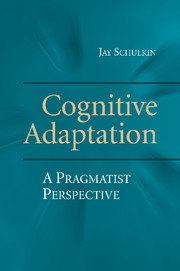Book contents
- Frontmatter
- Contents
- Preface
- Introduction
- 1 Cognitive Adaptation, Objects, and Inquiry
- 2 The Human Situation: Uncertainty and Adaptation
- 3 Time and Memory: Historical Sensibilities
- 4 Educational Sensibilities
- 5 An Instinct for Spiritual Quests: Quiet Religion
- Conclusion: Demythologized Reason
- References
- Index
Introduction
Published online by Cambridge University Press: 08 August 2009
- Frontmatter
- Contents
- Preface
- Introduction
- 1 Cognitive Adaptation, Objects, and Inquiry
- 2 The Human Situation: Uncertainty and Adaptation
- 3 Time and Memory: Historical Sensibilities
- 4 Educational Sensibilities
- 5 An Instinct for Spiritual Quests: Quiet Religion
- Conclusion: Demythologized Reason
- References
- Index
Summary
Hope is the thing with feathers
That perches in the soul …
– Emily DickinsonOurs is the age of biological knowledge. In the scope of its objectives and in its potential for transforming how we think about our place in the world, the Human Genome Project is the direct descendant of the Manhattan Project. This seemingly incongruous analogy has at its center the common theme of an assembly of scientists working together toward a common end and with great potential power. For the Human Genome Project, that end is deciphering the molecular composition of our genetic heritage.
Experiment lies at the heart of modern science (Dear, 1995; see also Bernard, 1865/1957). The idea of reconstructing who we are, of illuminating a moment in our evolutionary journey, and of knowing in full detail the underlying blueprint and structure of our biological material is the ultimate legacy of Charles Darwin and Gregor Mendel, arguably the progenitors of the modern biological sciences. The depiction of our entire genetic structure is as revolutionary as was Albert Einstein's reconstruction of the world of physics once inhabited by Isaac Newton.
We can only comprehend the radical nature of the Human Genome Project's import because we come prepared to understand the world in terms of agents and action, direction. We come prepared to share and exploit experiences, to form meaningful connections – to be connected to others (Jaspers, 1913/1997).
- Type
- Chapter
- Information
- Cognitive AdaptationA Pragmatist Perspective, pp. 1 - 17Publisher: Cambridge University PressPrint publication year: 2008



